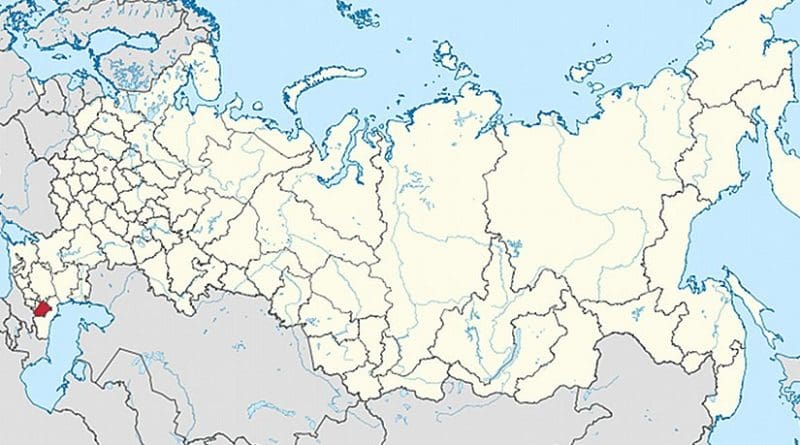Chechen Muslims Increasingly Intolerant Of Other Faiths, Poll Finds
By Paul Goble
A survey of 200 Chechens in Grozny three weeks ago found that Chechens are more committed to their traditional form of Islam than are most other North Caucasian peoples and that they are relatively intolerant of other strains of Islam and of other faiths altogether.
Since 2004, the Caucasus Times news agency, which is based in Prague, has conducted surveys in the capitals of the North Caucasus republics. Starting in February of this year, Islam Tekushev reported over the weekend, the agency’s correspondents have been asking residents of these cities about Islam (www.caucasustimes.com/article.asp?id=20207).
For obvious reasons, such polls are not based on a scientifically determined sample: the correspondents simply do not have the opportunity to do more than talk with people they meet on the streets who are willing to respond to their questions. But the results are nonetheless intriguing, providing as they do a kind of data available from no other source.
According to Tekushev who led this collection effort, “the identity of the overwhelming majority of the population of the capital of Chechnya [–95 percent–] is firmly connected with Islam.” There are very few people there who consider themselves to be Christians — 2 percent — or atheists — 3 percent.
Moreover, a large fraction of them – more than eight in ten – say that “religion plays a large role in their lives,” with another 13 percent saying that it plays a relatively large one. Only one in a hundred said that religion plays a small role, and two percent did not answer. Only the atheists said that it did not play any role in their lives.
Eighty-two percent of those questions said that the prayed every day, with another five percent saying that they did not weekly, 12 percent saying they did so “from time to time.” But the share which regularly visits the mosques is much smaller: Eight percent say they do so daily, and 43 percent say they go every week.
Asked about whether the rights of Muslims are observed in Chechnya, 54 percent said yes, and an additional 25 percent said that they were more observed than not. “Only nine percent of those questioned think,” Tekushev reports, “that the rights of Muslims are not observed” as they should be.
The Caucasus Times journalists also asked Grozny residents about their attitudes toward other trends in Islam and toward other atheism and other religions. With regard to the former, 62 percent condemned Wahhabism, although 10 percent had a more or less positive view of it. But an even higher percentage 87 percent condemned atheism.
Grozny residents, most of whom are Muslims, have negative attitudes toward other religions. According to Tekushev, 61 percent have a more or less negative attitude toward Christianity, 87 percent have a more or less negative view of Judaism, and 83 percent have a more or less negative set of attitudes about Buddhism.
Three things are immediately striking about these findings. First, Chechens appear to be much more prepared to identify with Islam now than they were only a few years ago, a reflection of the pro-Muslim policies of Ramzan Kadyrov and his father. Second, as they have become more Muslim, they appear to have become more antagonistic to other faiths.
And third – and as a result of these two trends – Chechens under Kadyrov not only stand out among North Caucasians and other Muslim groups elsewhere in the Russian Federation but also are likely to have more reasons for being at odds with Russians now than ever before, something likely to make integrating them into the Russian political space far more difficult.
Indeed, to the extent that this poll is representative of the attitudes of Chechens more generally – and it is likely that rural Chechens are even more religious than Grozny residents – Moscow may now face in Chechnya a second Daghestan, another republic that is in the minds of its people Muslim before it is Russian.

